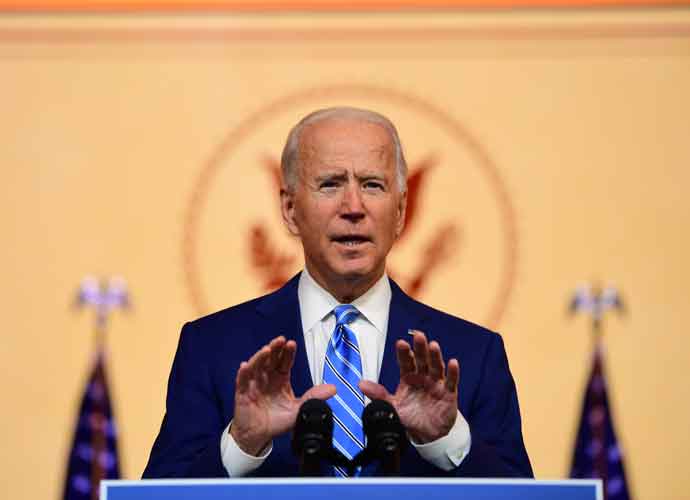Biden Imposes Harsh New Economic Sanctions On Russia After Ukraine Invasion
The Biden administration imposed additional sanctions targeting Russia’s central bank on Monday following Russia’s unprovoked invasion of Ukraine last week.
The penalties prohibited Americans from doing business with the central bank, froze its assets inside the U.S. and removed major Russian banks from SWIFT, the international banking messaging system.
“Our strategy, to put it simply, is to make sure that the Russian economy goes back as long as President Putin decides to go forward with his invasion of Ukraine,” a senior administration official said on a conference call with reporters.
Russian President Vladimir Putin had been putting away money over the last eight years to prepare for sanctions, but Peach and Capital Economics reported that with multiple countries banning transactions with Russia’s central bank and freezing its assets, at least half of the $630 billion in international reserves is untouchable to Putin. Additionally, some of the value is in gold, but Russia has few willing to do business with it.
Subscribe to our free weekly newsletter!
A week of political news in your in-box.
We find the news you need to know, so you don't have to.
Levying such harsh sanctions has taken coordination from many countries. The Russian ruble has depreciated to $.0095 against the U.S. dollar.
The sanctions could take a toll globally as Russia is one of the top oil and natural gas exporters for European countries. Experts say the U.S. should be okay, but European countries that are more connected to the Russian economy and resources will see a larger impact. Concerns continue to grow that Putin could respond by limiting Russian exports, creating higher prices and higher demand.
Get the most-revealing celebrity conversations with the uInterview podcast!









Leave a comment